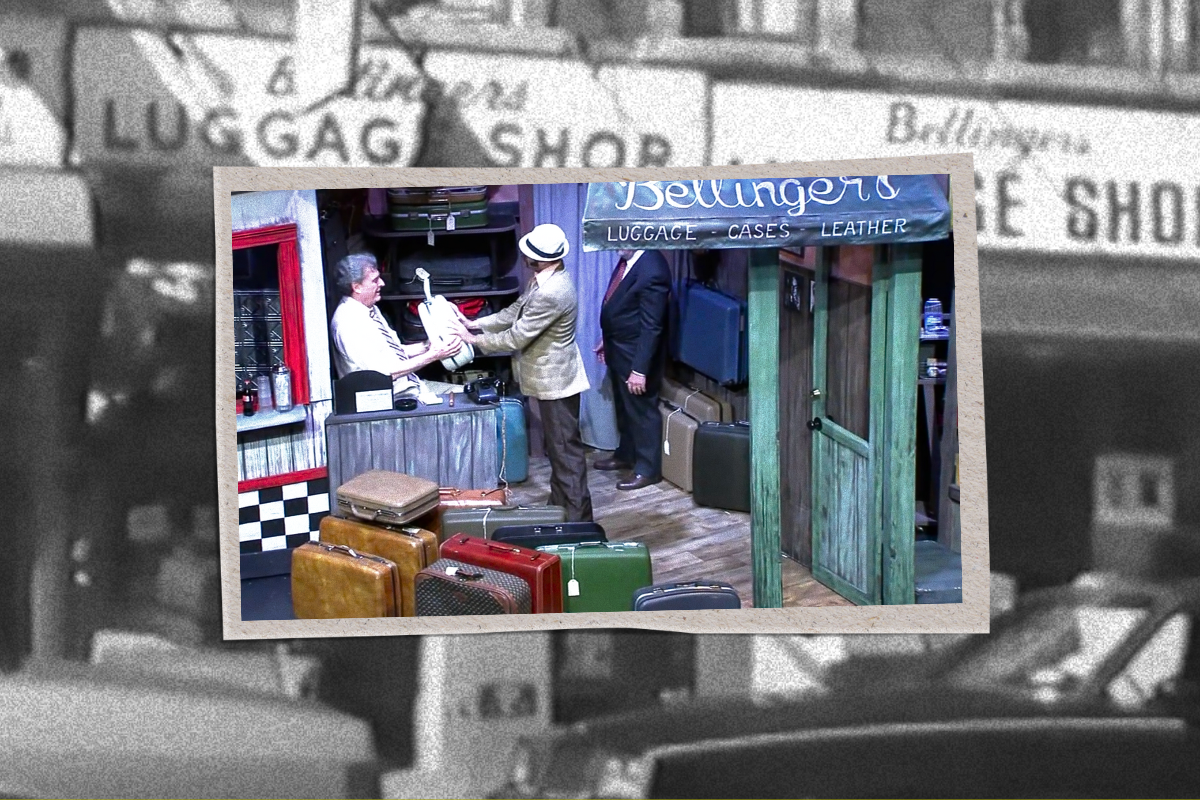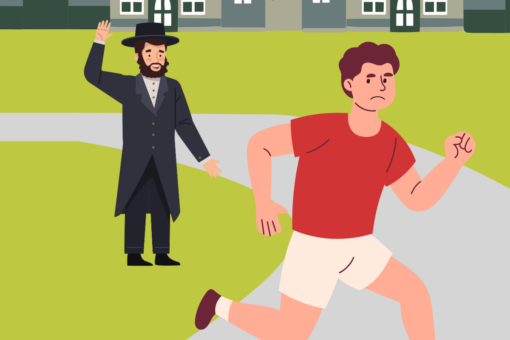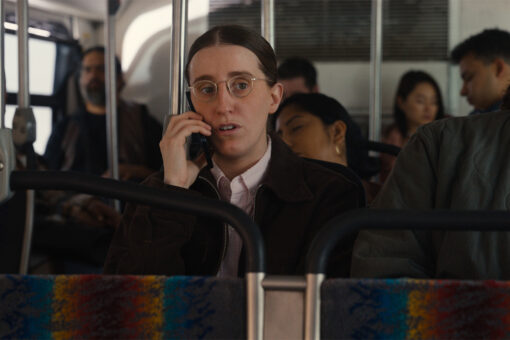In true Ellis Island tradition, my great-grandfather Sussman Bettinger came over from Poland and settled on the Lower East Side of New York City where he started selling suitcases. He first sold his merchandise on a push cart, then in a basement and ultimately, in 1914, opened a store called Bettinger’s Luggage Shop on the corner of Rivington and Allen streets. He and his wife raised their four children in the apartment above the store; he was a pillar in the community, with a special seat next to the rabbi in their shul across the street. After his youngest son Lou returned from his service in World War II, Sussman handed the store down to him. Lou worked there together with his siblings, and the store thrived and remained open for more than 80 years.
One of the most formative aspects of my Jewish self-identity is Bettinger’s Luggage Shop. While I was born in Brooklyn and then raised in Connecticut, every year my mom and dad would take us down to the Lower East Side in Manhattan to buy necessities for the new school year and enjoy delicacies only found there — new panties (how I hated that word) and tights for the High Holy Days at Klein’s, knishes from Yonah Schimmel’s, lunch at Shmulka Bernstein’s or Ratner’s and pickles fished out of the barrels at Gus’. And on each of these trips we would visit “The Store” to see my grandmother, aunt and uncles at work.
It was, literally, a hole in the wall, with suitcases, trunks, duffles and briefcases stacked floor to ceiling, and only a one-person wide space to walk through the entire shop. Everyone had their role: My great uncle Lou, the owner and boss lording over the place, proudly squeezing his portly body between the piles of bags, shouting prices across the store to his siblings; my grandmother Ray at the cash register, making sales, keeping the books and negotiating prices in secret code with her brother and sister; my glamorous Aunt Dotty in the back room behind the counter holding the “attache cases” and elegant leather organizers (the smell of leather still evokes that very particular memory for me); and my gregarious Uncle Bob out on the street, greeting people and welcoming them in. My siblings and I would find hiding places in the shop, all while my grandmother, great aunt and uncles would yell across the store making sales, often inventing prices on the spot.
The store, as small, musty and cluttered as it was, had an unlikely reputation in the city as the destination to buy luggage at a bargain price. It was listed in shopping guides of the city. Dignitaries and celebrities visited the store. My grandmother would call me to tell me that a famous rock star had come in, rarely remembering their name. And while the threat of mice and roaches sometimes intimidated the young me — there was a tiny, dark bathroom in the back that I refused to use — visiting the store was always an adventure and, in a rare reversal of roles, I got to schep naches — feel pride — in that place where my family’s elders were in charge, even amidst the shouting and disorder.
When I was a film student at New York University, I shot a documentary about the store capturing its sites, sounds and atmosphere and holding it in time. It served as a way for my family to recall the voices of our beloved relatives and preserve this slice of our history. Technologies as they are, however, the only copy was on a long-obsolete VHS tape that we haven’t been able to locate in many years. So even this glimpse into Bettinger’s disappeared from our lives.
And sadly, when my great aunt and uncles passed, and with the passing of my grandmother in the early ‘90s, my tether to the store loosened and ultimately unraveled completely. At some point in the ‘90s, the store closed. The last time I saw a photo of that corner of Rivington and Allen, the storefront was a tattoo shop. And now, the richness and personality of the Lower East Side that I grew up in has evolved and gentrified — the hipster, upscale shops that now exist there would never believe what came before them.
Cut to mid-2023, when I received a text from my sister on our family group text chain, linking to an advertisement for an off-Broadway play called “Bettinger’s Luggage”. I texted her back immediately, incredulously: WTAF?!. Much to our surprise, we learned that someone had gotten access to our family’s story and had written a play based on the history of the store. The story of the shop had been told to the playwright by my Uncle Lou’s son, and, inspired by it, the playwright wrote a script based on our family’s experience and the overall immigrant melting pot on the Lower East Side in the 1970s.
Initially, my family felt robbed of our personal experience. We felt angry and resentful that none of us, the surviving relatives, had been contacted to give perspective, or comment on the accuracy of the depiction.
But when my sister saw the play — as did many of the children and grandchildren of the people who inspired it — they laughed and cried at the dialogue that could have been pulled directly out of our family members’ mouths. My sister relayed to me that, while she wept over some of the character’s words and mannerisms that were so like our family’s, the play told a larger story beyond ours — about the peaceful coexistence of immigrants from so many backgrounds who started their new lives on the Lower East Side; about the struggle for fathers and sons to connect and understand each other; and about the veiled antisemitism that, even in an environment as Jewish as the Lower East Side at the turn of the 20th century, pervaded their lives, and how it continues to there and everywhere, now more than ever. When she had the opportunity to meet the playwright and director, my sister was welcomed, embraced and honored in the same way that the play intended to honor those before her. Our resentment eased; I now feel the same naches I felt as a child in the original luggage shop.
“Bettinger’s Luggage” ran for about a month at the AMT Theater. Who could predict that my family’s story would be a meaningful entry point for others? A play about a little suitcase shop that could, run by a gaggle of outspoken siblings — my people — would become a doorway into the ways in which we are all connected.



